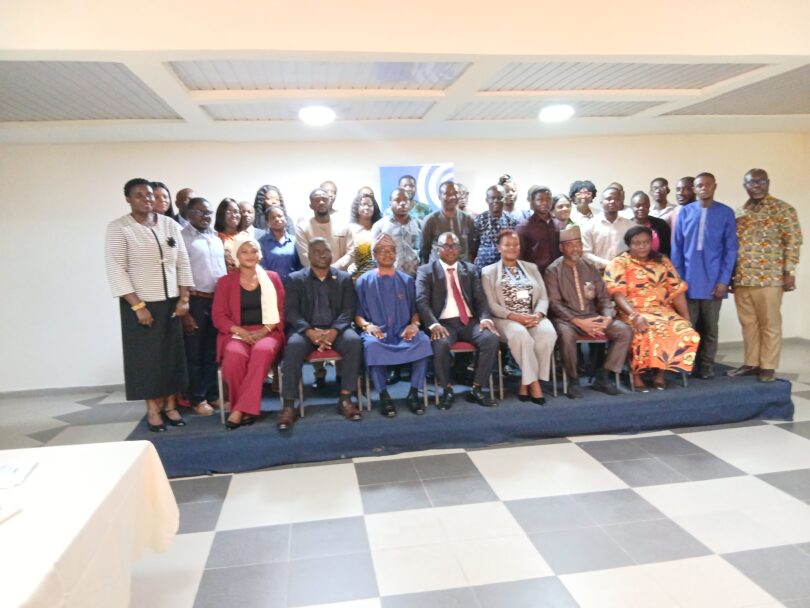Report By: Ishmael Barfi
Climate change is significantly affecting Ghana’s water resources, leading to droughts, erratic rainfall, and unpredictable weather patterns that impact both water availability and quality.
These changes, in turn, affect the livelihoods of communities, especially in rural areas.
Engineer Richard Ntibrey, Programme Manager for WASH Climate Change at WaterAid Ghana, emphasizes the importance of partnership and collaboration in tackling these pressing issues.
He stated, “The Impact of climate change is affecting water availability, livelihoods, and health in Ghana.
Therefore, we need to work together to address this challenge and build resilience in our communities.”

Engineer Richard Ntibrey, Programme Manager for WASH Climate Change at WaterAid Ghana
To mitigate the effects of climate change, Engineer Richard identified several key areas for action, including the design and construction of infrastructure that can sustain services during extreme weather events.
He also highlighted the need for encouraging private sector investment in climate change initiatives by mitigating associated risks.
Furthermore, he advocates for enhanced coordination among development partners and government agencies to create scalable models for effective climate change responses.
Engineer Richard made these remarks during an interview at the WASH 4 Climate Summit, which was jointly organized by the Office of the Minister of State for Climate Change and Sustainability and WaterAid in Accra.
The Summit’s theme was “Strengthening Water, Sanitation & Hygiene (WASH) Resilience in the Face of Climate Change.”
Addressing the role of the government, Engineer Richard noted that it plays a crucial role in coordinating efforts and resources to tackle climate change.
“The government has a key role to play in coordinating these efforts,” he said.
“However, the private sector can also significantly contribute to addressing climate change, but often hesitates due to perceived risks.
The government can help mitigate these risks and foster private sector investment in climate initiatives.”
By collaborating, the government, private sector, and development partners can enhance resilience and mitigate the impacts of climate change on water resources, livelihoods, and health in Ghana.
“We need to come together to build resilience and mitigate the impacts of climate change on our water resources, livelihoods, and health,” Engineer Richard concluded.
“By partnering with the government, private sector, and development partners, we can make a significant difference in the lives of Ghanaians.”
Source: www.thenewindependentonline.com








